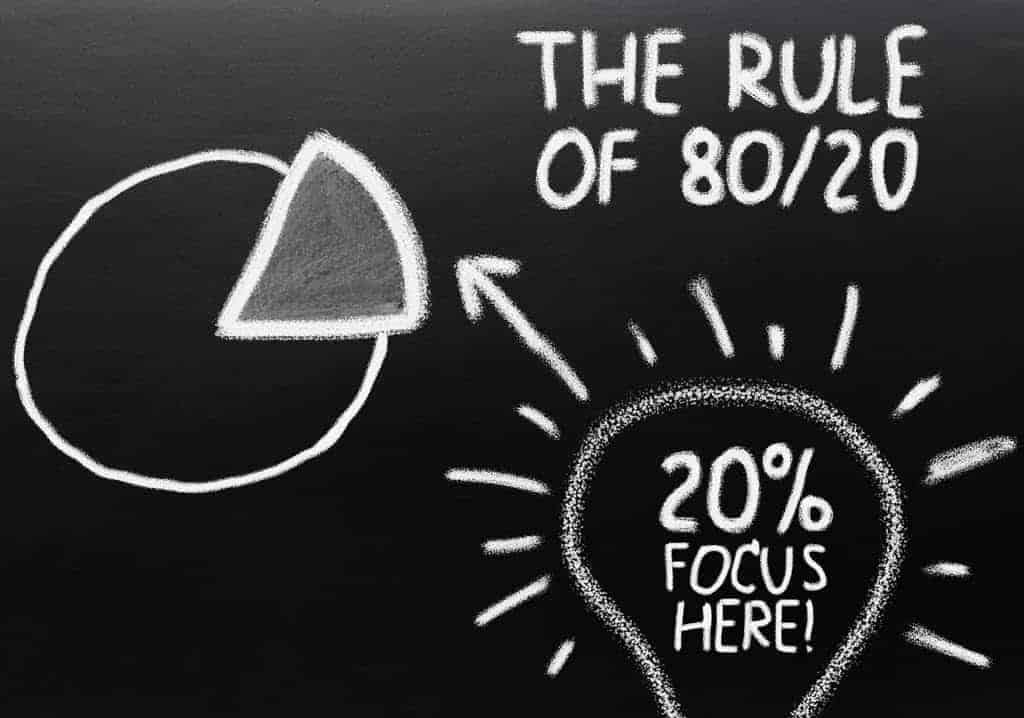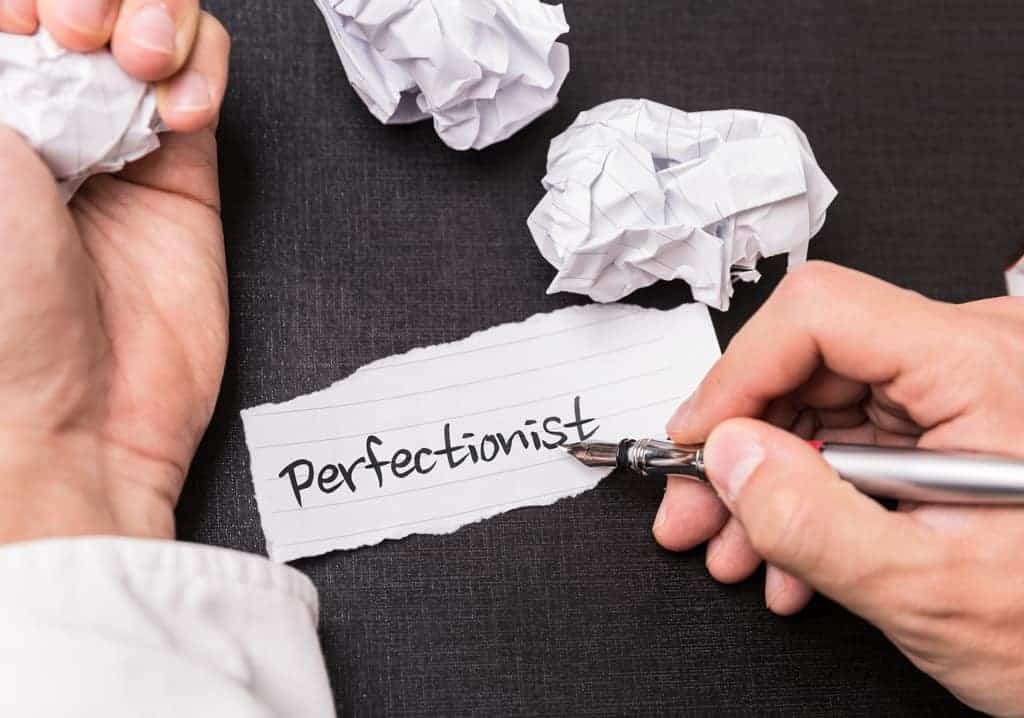Perfection is a trap. It’s a societal expectation that many of us buy into, or at least feel a gravitational pull towards, after years of comments from teachers, parents and friends.
Working towards perfection leaves us with feelings of negativity. We feel stressed, burnt out and ultimately unhappy. The constant pursuit of perfect leaves us with very little room for joy or creativity.
Imagine a world, instead that values creativity. Out of the box thinking. Imagine a world that celebrates mistakes as necessary building blocks for innovation and growth. Reducing the perfection requirement allows us to discover more, have more realistic goals, and have a more relaxed way of living.

Those who struggle to be perfect can look to reconsider the benefit of socially prescribed perfectionism and instead to embrace the gifts of imperfection. Those who feel compelled by perfectionistic behavior can reframe this drive for perfection as a thief of creativity, joy and ease.
Instead, look to progress (not perfection), and enjoyment (not achievement).
Covid-19 has given us the ability and permission to be imperfect and prioritize our mental health. How can we be perfect when the world has taken away so much?
Getting Over Perfectionism
Perfectionist tendency can suck the joy, fun and creativity out of the day. Overcoming perfectionism and embracing the imperfections will center your sense of self and overcome the unrealistic (and stressful) standard you may have imagined for yourself.
Some people will try to “outdo” us in our day-to-day lives. Understanding the costs associated with “getting it perfect” and learning how to accept our limits is essential in getting space between good enough and perfect.
What is perfect today is imperfect tomorrow. It is ok to get out of the competition loop and be the best you can be in this moment, without physical and mental health costs. It will be a relief to live up to your personal expectations rather than everybody else’s. Learning how not to be a perfectionist allows us to move to our own beat.

This dancer is perfectly imperfect. Photo by Clem Onojeghuo on Unsplash
Realizing that you may not fit in with everyone is a good thing. It permits you to have more creative freedom. Being free from the competition can create a path that is new, exciting and unique. How can you best be yourself?
A Note on Relaxing Perfection
Now make no mistake: I am not advocating hackery. Don’t be a hack. Do the best you can. Seriously, give it your best.
And when that next level eludes you, consider the cost of going for it. Is that 7 minute mile not happening now, but it could possibly be achievable with another six months training? Have you lost 45 pounds, but the final 5 pounds are elusive? Can you get good with where you are now and pursue a realistic improvement in the future?
The quest for perfectionism is tweaky and maddening; if you’re not here in the moment, is this a growth objective you can strive for? Growth is good. Personal development (and a realistic, committed plan to achieve it) is fantastic. Perfection? It’s a little Stepford-ish. Take a pass.
Where Are You Imperfect?
Look at the areas of your life where you are imperfect, creative, confident and whole. Where is that? Where do you not “fit in”, and instead “belong”? Where do you belong in terms of friends, work, ethnicity, even geography. In finding that space of belonging (as opposed to shaving off those quirky edges so that you can better “fit in”), there is great freedom and relief.
There is freedom when you embrace your style of doing things, your way of being, as opposed to doing them as you’re “supposed” to. Sure, there are some ways that you need to get in line with society (eat with utensils, drive on the right side of the road), but there are other ways that you can write your own ticket — clothes, occupation, how much money you’d like to make.
Pursuing materialistic goods endlessly is an endless race. Ack! Perfection is an endless race too. Think about your stopping points and where you can feel satisfied and complete. What best reflects the person you are and want to be.
Assessing what you feel like you “should” pursue and what you “want” to pursue is essential. Don’t get down on yourself for not reaching all the outstanding goals.
Using the 80/20 Rule
A useful tool for reframing perfectionism is the 80/20 rule. It’s a way to work hard but without having to spend too much energy on perfect.
Two of my favorite phrases on the subject:
“Let good enough be good enough.”
“Don’t let perfect become the enemy of good.”
80% is good enough. When the final 20% of improvement leads to another 80% of cost, energy or time, ask yourself — is it worth it to expend that extra energy to pursue the final 20%? Life is a game of balance and rebalance, trade off and re-prioritize.
If the effort you put into the first 80% is the same amount exerted into the last 20%; that’s a lot of effort for perfection. At 80%, you have reached a point of diminishing returns and might want to consider stepping away and putting your energy elsewhere.
This good-enough philosophy is a thought process that can be trialed during this time of pandemic when it is hard, if not impossible, to be perfect.

We need to accept that we can be good enough. That doesn’t mean just doing the bare minimum. When you relinquish that hold on 100% perfection, there is still space to do a good job.
Some people will work 14 hours a day, run their household and have only a few hours of sleep. Do you think that this extensive effort is going to put anyone’s best creative work forward? Can perfectionist work be done while being overtired, stressed and pressured?
Cranking out work at all hours means it will always take long hours because you will never produce your best work efficiently. However, being less stressed, having reduced pressure and getting a good night’s sleep means you can do more in less time with a similar outcome.
What can you take off your plate? Seriously, right now, what can you remove?
Following the 80/20 rule opens the door to more success than you might think. That extra space obtained from the 20% freedom means there can be more experience. You can enjoy spontaneity, fun, and creativity on the fly on unexpected serendipity.
There is space for innovation. Plan for the 80%, but let that 20% run free and be less hindered by planning and strategizing. Yield to the uncertain. It offers time for creative problem-solving. If only a linear path is travelled, then it’s harder to get what you want and let alone enjoy any of the journeys.
Recap: Your Tools for Addressing Perfectionism:
- Recognize the costs of perfectionism. It’s rarely worth it, and while you may be able to achieve it, it’s impossible to maintain. The pandemic sheds light on this. Identify areas of your life where you’re not perfect, and you’re content.
- Embrace the 80/20. Use the 80/20 framework (and sometimes 60/40), for more ease, gentleness and satisfaction with your life. Flexibility and lack of certainty mean you can adjust and move forward without causing yourself undue stress. Don’t worry when perfection can not be reached.
- Bend so that you do not break. Perfection and 100% means you can snap. Buildings and trees always have some flexibility built in to move in the wind. Being flexible means you can adapt to change. Adversity breeds character.
When you give up on being perfect, you can enjoy all the things that imperfection offers. Protect yourself from the myth of perfection and embrace the creative self-actualization that comes with imperfection.



